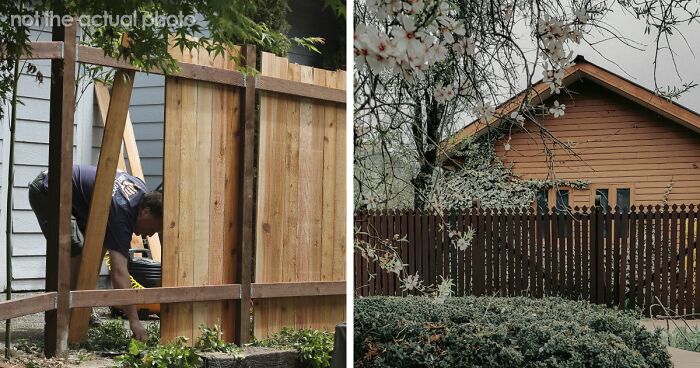
Karen Throws A Raging Fit Over Neighbor’s New Fence, Regrets It After Losing 800 Sq Ft Of Their Yard
Interview With ExpertHumans, similar to animals, are territorial creatures. Establishing boundaries preserves our privacy, organizes social interactions, and minimizes conflict. However, when they’re threatened, we feel the need to defend them, not always in the most ethical ways.
When this guy started building a new fence for a friend, the next-door neighbor immediately came running, forbidding him to remove the old one, as it was on her land. This led to a property investigation, which showed that not only was she wrong, but she also appropriated a part of the neighbor’s territory.
Establishing territory preserves our privacy, and when it’s threatened, we feel the need to defend it
Image credits: stockcentral / Envato (not the actual photo)
This woman felt her boundaries were threatened by her neighbor’s new fence, which couldn’t have been further from the truth
Image credits: jm_video / Envato (not the actual photo)
Image credits: Karolina Kaboompics / Pexels (not the actual photo)
Image credits: bigt8r
6.6 million people living in Britain were involved in a boundary dispute
A report by Churchill Home Insurance states that in 2022 around 6.6 million people living in Britain were involved in a boundary dispute. They most commonly involve fences, walls, and hedges and also include other property-covering features like overhanging trees and driveways.
Interestingly enough, such disagreements are often over a small piece of land. The report reveals that the average size of the property that led to the conflict was usually around 2%, or 27.5 square feet of their yard. The findings add that one in five disputes centers around less than 10 square feet of land.
Lawyer Chris Boundy attributes such disagreements to our inability to effectively engage with each other. “I think partly it’s because we’re not used to engagement with our neighbours, I think we’re much more keen to send a text message than talk to our neighbours,” he said.
To resolve disputes, they often encourage neighbors to talk to each other, but the mindset that ‘if I pay for the cost of a new fence, I can decide what I want to do with it’ sometimes makes this impossible.
Most territorial disputes arise from our inability, or rather, reluctance, to engage with neighbors
Boundy presented a good point, saying that most territorial disputes arise from our inability, or rather, reluctance, to engage with neighbors, as Top Rail Fence data shows that 65% of Americans hide from next-door residents.
According to their survey, 48% of people report interacting with their neighbors monthly or less, with Gen Z avoiding the nearby dwellers the most. The most commonly used avoidance techniques are simply pretending they don’t see them (37%), staying inside when they’re outside (34%), wearing headphones, or acting like they’re on the phone (21%).
Bored Panda was lucky enough to get in contact with Top Rail Fence president Todd Bingham to find out why that might be the case. He told us, “Privacy is a significant factor; many people value their personal space and prefer solitude over social interactions. The demands of modern life, with long working hours and various commitments, often leave people with limited time and energy for socializing.
Even the digital age plays a role. The rise of online communication also means that younger generations, in particular, tend to socialize more online than in person, reducing the need for face-to-face neighborly interactions.”
Such estrangement from neighbors not only has the potential to result in territorial disputes but overall weakens the community and reduces the sense of belonging among residents, says Bingham. “This isolation can lead to feelings of loneliness and a lack of social support, which are crucial for mental well-being.”
“Safety and security can also be compromised,” he adds, “as neighbors who don’t know each other are less likely to look out for one another, potentially leading to increased crime and safety concerns. The inability to organize collective actions, such as community events or addressing common issues, can hinder neighborhood improvements and development.”
To foster neighborly interactions and improve their relationships, Bingham suggests creating opportunities for residents to meet and interact by organizing community events like block parties, neighborhood clean-ups, or holiday celebrations. “Creating and maintaining shared spaces, like parks, community gardens, or recreational areas, can facilitate informal interactions among neighbors.”
Lastly, he says, “Active homeowner associations (HOAs) or neighborhood groups can also play a role in fostering community engagement. Using online neighborhood community apps or social media groups can keep residents connected and informed about local events and issues, promoting a sense of community even in the digital realm.”
The author provided more context in the comments
Some readers shared similar stories
Poll Question
Thanks! Check out the results:
Some folks NEVER learn. They could ruin a free lunch. Way to go, Karen. I'll bet she got an earful from DH later on.
What's a DH? Double homicide? Doorbell hound? Drum hellscape? Dribbling hortensia? Please help, I don't wanna think of any more of these...
Load More Replies...The "two fat geese" story is so fake. Why would give that note to a client to give to another lawyaer and not just call them up instead? I guess they could be idiots but that doesn't make any sense.
worth the intention of the person reading it and hopefully working it out. lawyers don't want to be bothered with chump change disputes.
Load More Replies...What was her problem anyway? It's not like they decided to pull down the fence altogether (which would still leave her free to build her own) but just to replace it? Couple of days' work?
It's a Karen. They have no functioning brain
Load More Replies...Some folks NEVER learn. They could ruin a free lunch. Way to go, Karen. I'll bet she got an earful from DH later on.
What's a DH? Double homicide? Doorbell hound? Drum hellscape? Dribbling hortensia? Please help, I don't wanna think of any more of these...
Load More Replies...The "two fat geese" story is so fake. Why would give that note to a client to give to another lawyaer and not just call them up instead? I guess they could be idiots but that doesn't make any sense.
worth the intention of the person reading it and hopefully working it out. lawyers don't want to be bothered with chump change disputes.
Load More Replies...What was her problem anyway? It's not like they decided to pull down the fence altogether (which would still leave her free to build her own) but just to replace it? Couple of days' work?
It's a Karen. They have no functioning brain
Load More Replies...
 Dark Mode
Dark Mode 

 No fees, cancel anytime
No fees, cancel anytime 






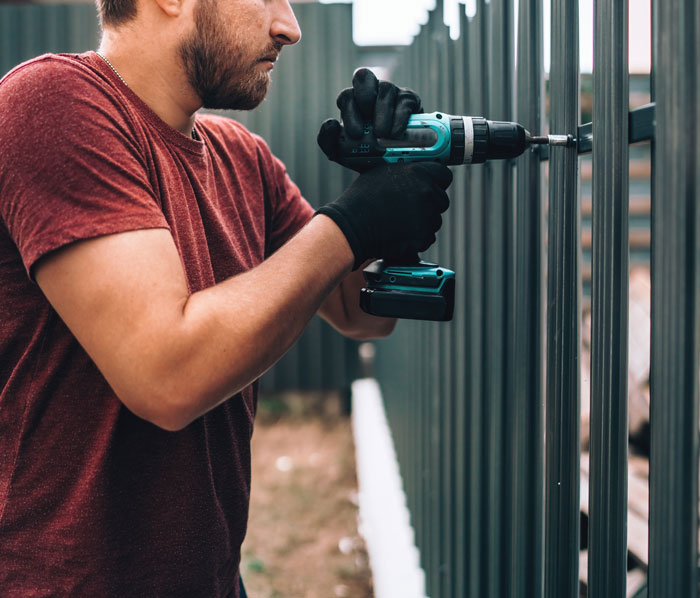
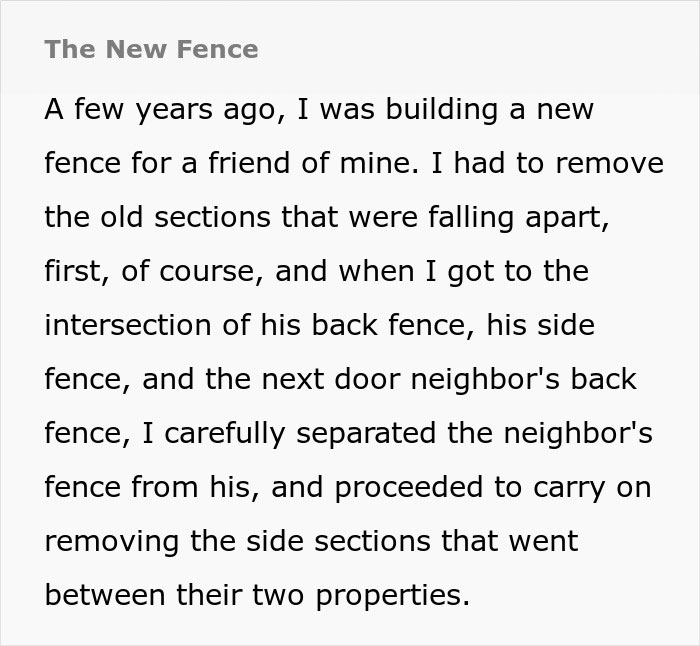
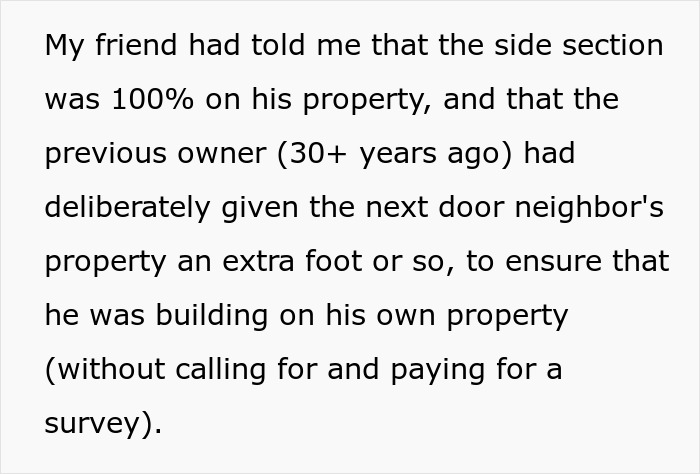
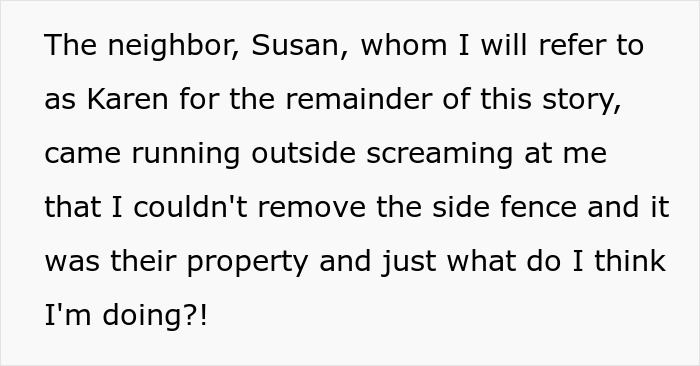
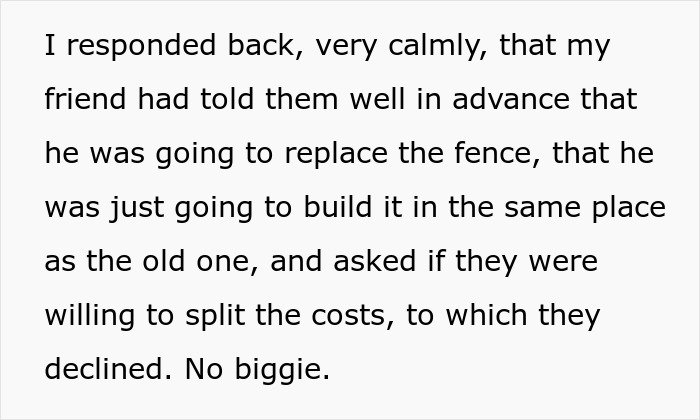

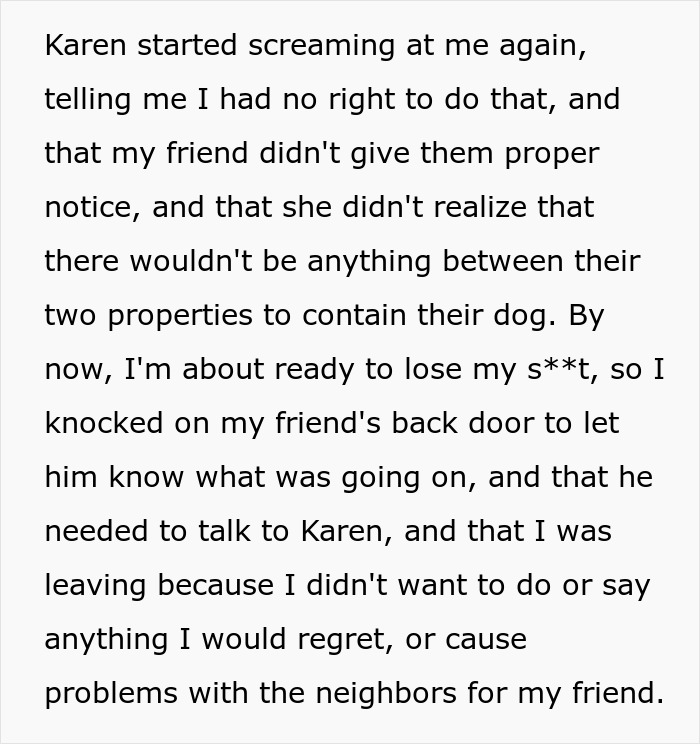
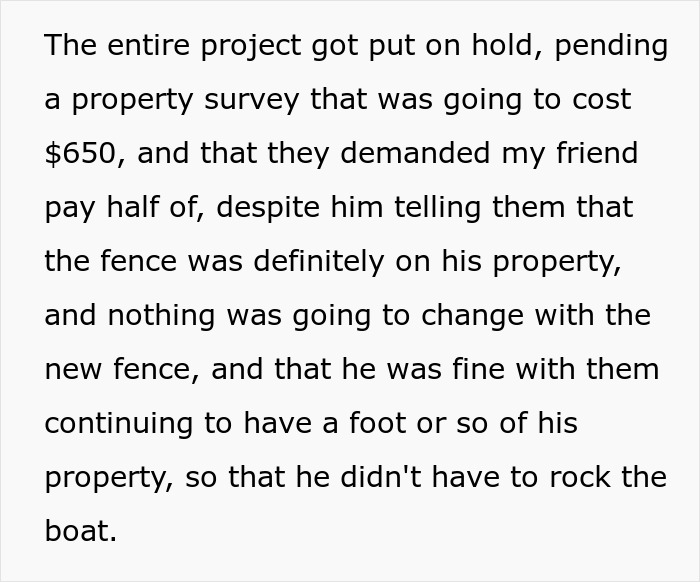
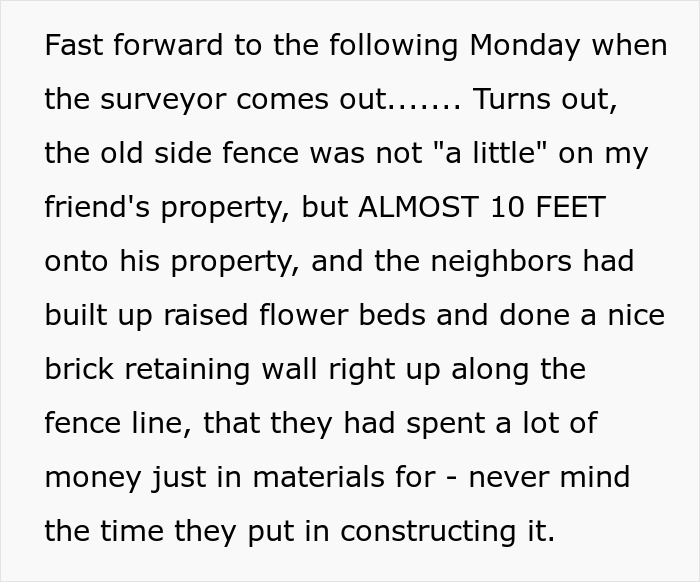

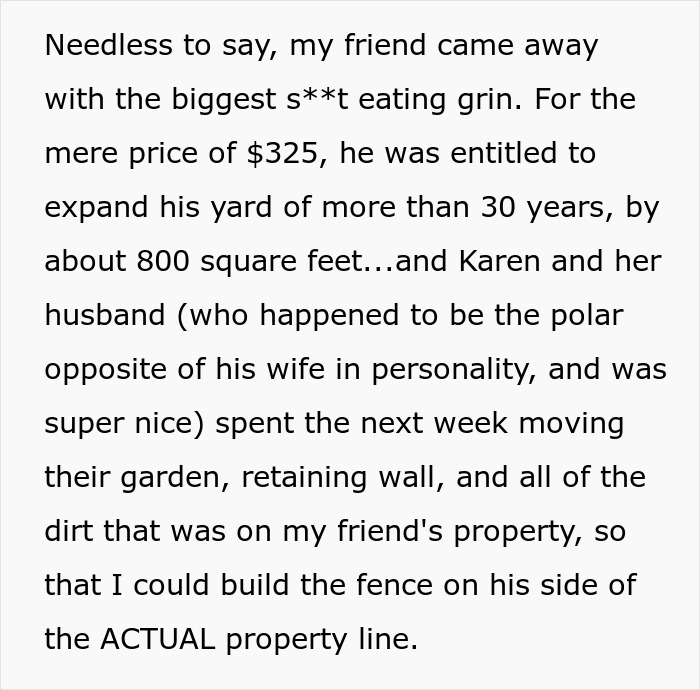
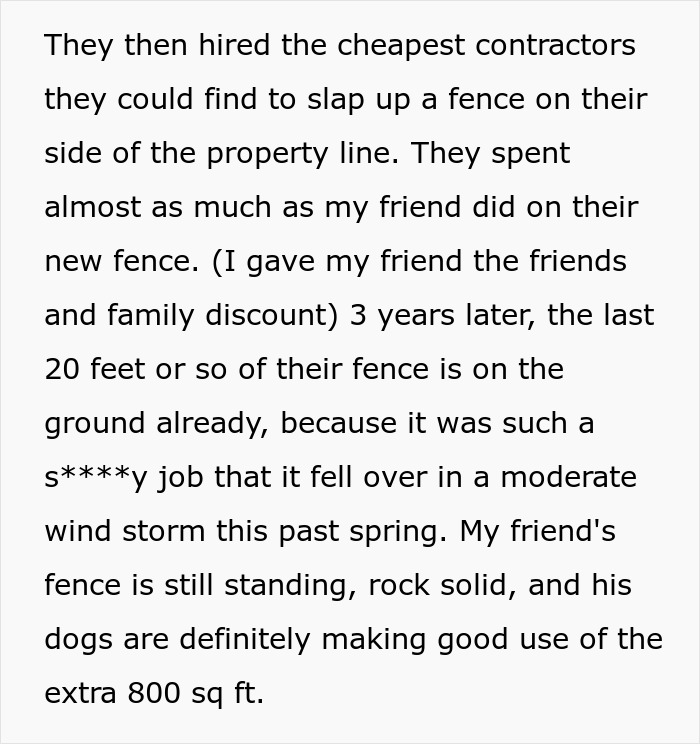


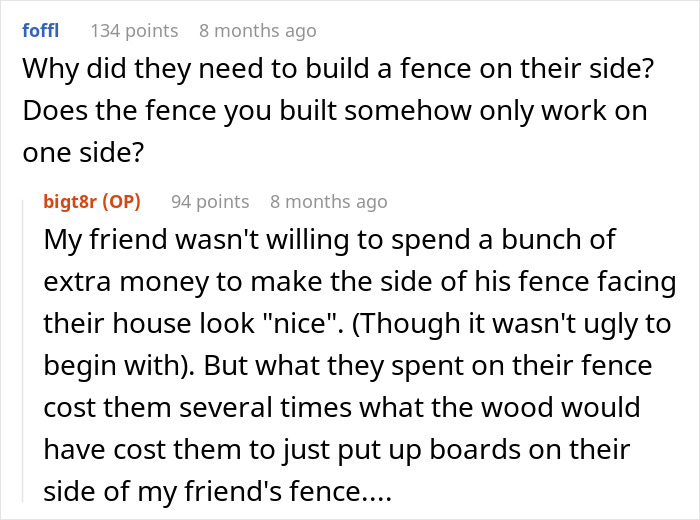

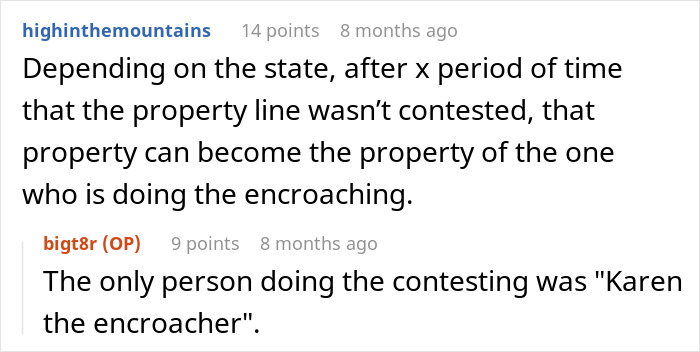


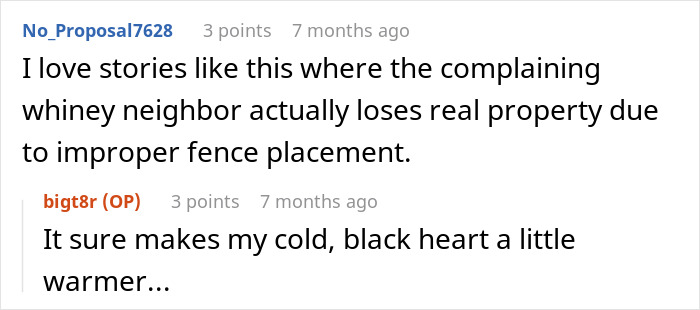
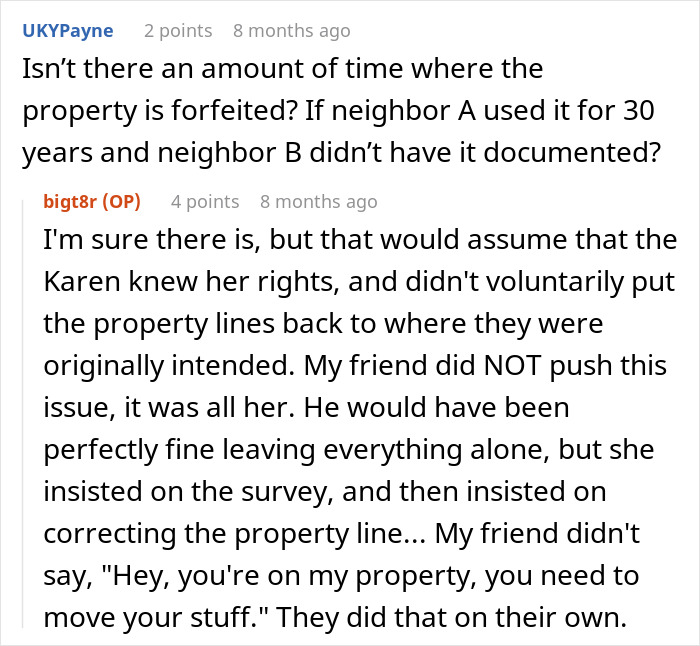
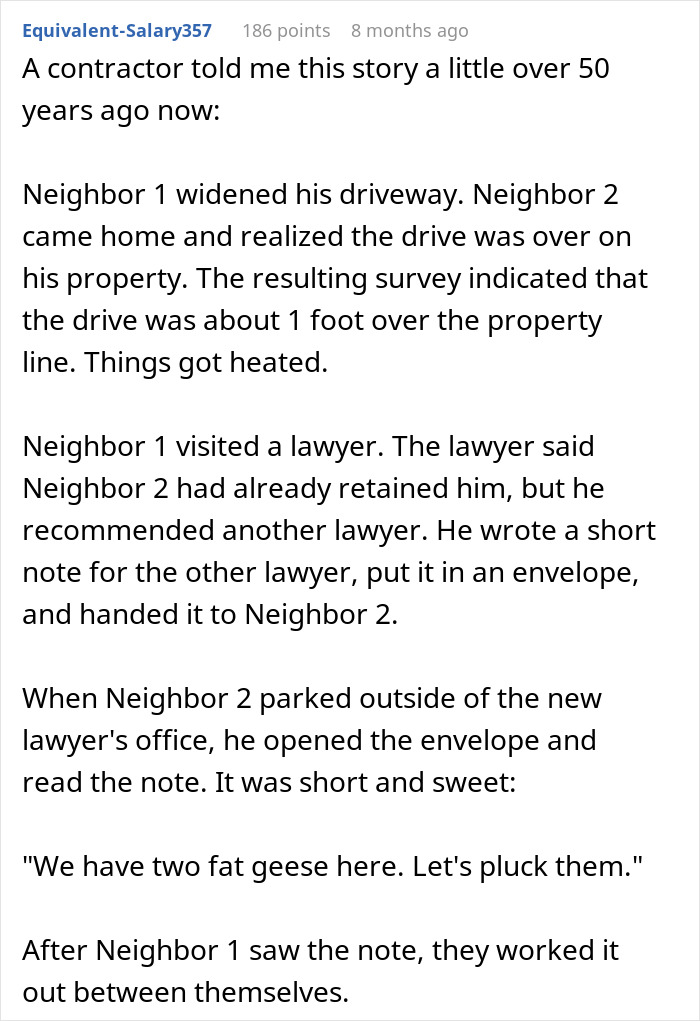
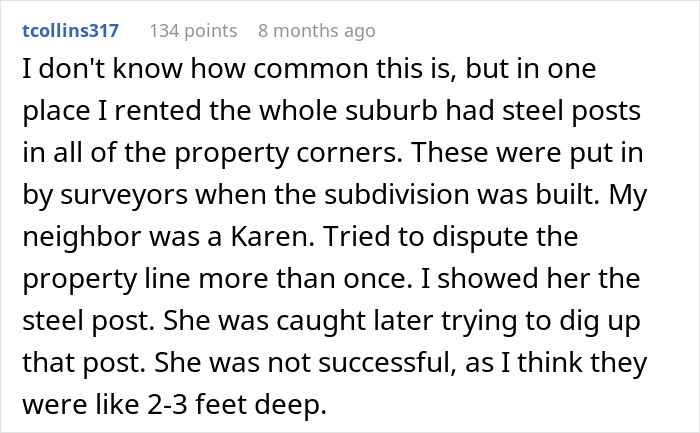
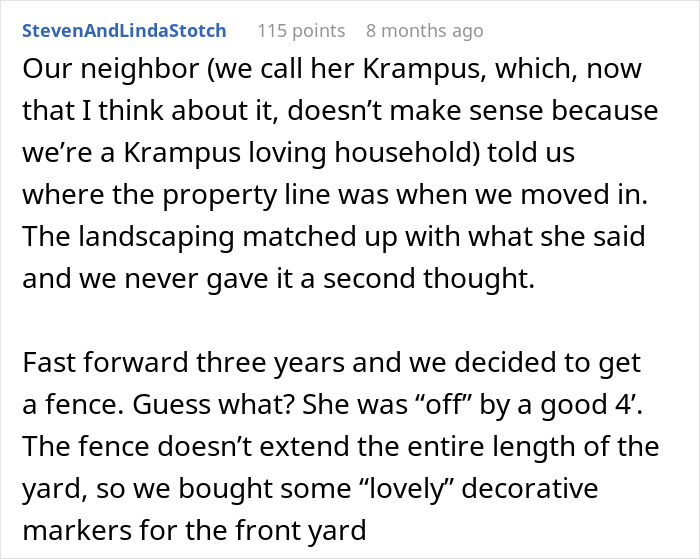














































52
17